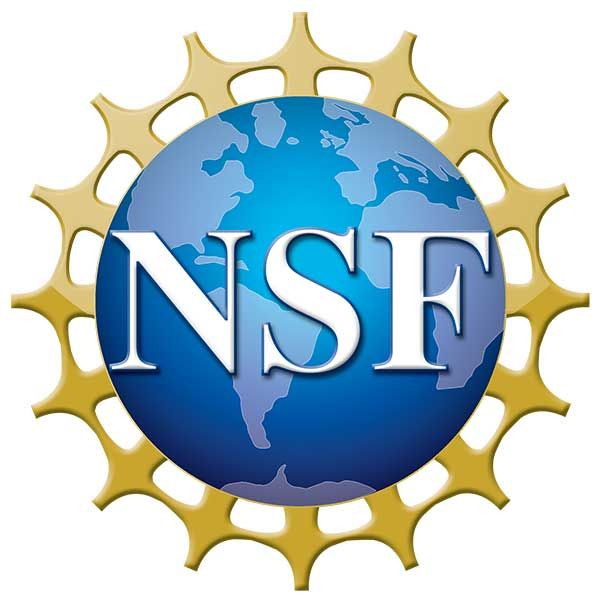March 2023
The National Science Foundation (NSF) has selected five faculty (Sumanta Basu, Tapomayukh Bhattacharjee, René Kizilcec, Immanuel Trummer, and Cheng Zhang) from the Cornell Ann S. Bowers College of Computing and Information Science to receive Faculty Early Career Development (CAREER) Awards. Each receive approximately $600,000 over the next five years to support their research. NSF provides these sustaining grants to early-career scientists who they believe will advance their fields and serve as role models within their institutions.
Sumanta Basu, assistant professor of statistics and data science
Basu, statistics and data science, studies network modeling of high-dimensional time series and nonlinear ensemble learning methods. In many areas of modern biological and social sciences, researchers and practitioners seek to gain insight into the dynamics of a complex system using large-scale time series datasets. The overarching goal of Basu’s project is to develop scalable statistical methods for learning such dynamic relationships using high-dimensional time series datasets, and provide a rigorous analysis of their properties. The research outcomes will be integrated into education and outreach activities, including training of graduate and undergraduate students.
Tapomayukh Bhattacharjee, assistant professor of computer science
Bhattacharjee, computer science, studies ways to enable robots to improve the quality of life of people with mobility limitations by assisting them with activities of daily living (ADLs), such as feeding, dressing and bathing. The goal is to develop caregiving robots that can assist people with disabilities – C1-C4 spinal cord injuries, in particular – in performing ADLs in real-life settings by leveraging close-proximity physical interactions. Realizing that contact with other humans and objects is inevitable, Bhattacharjee hopes to leverage this physical contact to learn safe and efficient robot control policies from it. The educational component will include programming for underrepresented minorities, and the design of an interdisciplinary training program to aid in the development and use of robotic technology applications.
René Kizilcec, assistant professor of information science
A leading online-learning researcher, Kizilcec has examined nearly every facet of tech-assisted learning. His work ranges from the design and impact of technology in education and the architecture of online classrooms – at major universities and in low-resource countries – to algorithms for predicting student dropout rates, and inclusive marketing strategies used to advertise online courses. Broadly, his research focuses on the impact of digital technologies in educational contexts, particularly questions of equality in online learning and social-psychological barriers to success, and scalable interventions to improve educational outcomes and reduce achievement gaps.
He is director of Cornell’s Future of Learning Lab, which works to advance our understanding of technology’s impact in education and how it can be an engine of equality throughout society. Kizilcec’s NSF CAREER Award will support his work to improve educators’ trust in and effective uses of predictive learning analytics to support students.
Immanuel Trummer, assistant professor of computer science
Trummer's work focuses on improving database performance through tuning, a series of decisions about how a database processes information internally. Specifically, he leverages large language models to support automated database performance tuning. The performance of database management systems depends on various tuning decisions, including settings for internal configuration parameters as well as the creation of auxiliary data structures. Making such decisions by hand is difficult, which has motivated the development of automated tuning tools. However, crucial information for database tuning is often contained in text documents, such as the database manual or text describing specific data sets and their properties. The current generation of tuning tools cannot exploit such information, making them inefficient. However, the latest generation of text processing methods – large language models based on the Transformer architecture – is often able to extract information from text with little to no task-specific training data. Trummer plans to exploit such methods to parse relevant text for database tuning, extracting information that helps to guide automated tuning efforts.
Cheng Zhang, assistant professor of information science
As the director of the Smart Computer Interfaces for Future Interactions (SciFi) lab, Zhang designs intelligent, privacy-sensitive, and minimally obtrusive wearables that can predict and understand human behavior and intentions in daily activities. Currently, computers struggle to recognize everyday activities due to the lack of high-quality behavioral data, such as body postures. Zhang's team addresses this through wearables endowed with artificial intelligence (AI)-powered active acoustic sensing that track and interpret human body postures of the hands, limbs, face, eyes, and tongue. The research aims to bridge the gap using cutting-edge AI techniques to enable applications in human activity recognition, telemedicine, and improving computer accessibility for individuals with hearing or speech impairments. Ultimately, the SciFi Lab seeks to create systems that function efficiently in real-world settings while protecting user privacy.



